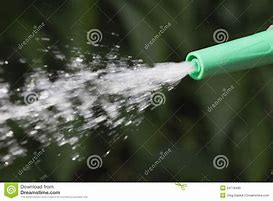water water everywhere

It was a pleasure to have an award winning speaker last Thursday.Dr Terry Heiler, an academic and international consultant who has spent his life on water management & irrigation, shared his thoughts on the past, present and future of our water management challenges.
Originally born in Sydney where he went to university Terry has since worked in various roles including Lincoln University where he was heavily involved in water resource issues both locally and overseas.
He began by explaining that water challenges internationally are quite different to here as there are 260 water resource areas shared by 71 countries which is very different to New Zealand.
Terry shared the example of India and Pakistan that share a large water basin and that they have often gone to war over it for various reasons including India planning a number of dams that would seriously affect Pakistan's water access.
Other examples include the Mekong River that flows through a number of countries and Russia where it has changed from having one nation-wide plumbing system to a group of smaller countries that are now fighting with each other over their individual water needs.
One of the particular challenges Terry sees in New Zealand is the different agendas of Country vs Town groups with the resulting disputes being dominated by organisations trying to protect water usage instead of working together. Of particular concern is that the gap has widened between main players with the resulting disputes being increasingly dominated by lawyers.
With respect to irrigation Terry mentioned that this has been a problem for decades. In 2009 it has been suggested that by 2030 the world will be facing serious water and food shortages as a result of three issues: an increasing population, the high number of people living on $1 a day, and increased pressure to produce more food.
“If unchecked this may well result in mass migration and serious issues in securing sufficient food” explained Terry.
With respect to at Europe, Terry mentioned that two thirds of major cities are currently extracting greater water from underground sources than their replenishment rate. He went on to note that luckily New Zealand is OK in this area at this stage but that we do need to avoid complacency as 70% of all grain plus other foods are dependent on irrigated land.
With respect to what New Zealand has done about this, Terry shared that most problems initially involved the flooding and drowning of rivers that only finished when the gold rush era was over and we moved to supporting irrigation to dams which represented a change from a focus on “gold” to “green”.
During the depression years lots of water programs were also developed to help provide work which was then taken over and managed by the Ministry of Works. Water races were encouraged through until the 1980 s until the party of the day decided we needed to stop.
With respect to Canterbury, Terry shared that we have some of the best underground water resources on the planet and for a number of years private irrigation was used frequently. He feels it has since got a bit out of control, however, and we have recently moved from a production to a value added approach.
Many of the current issues we face, explained Terry, are not about what we are doing now but what we did in the past and we seem to be less worried about food and more worried about endangered species survival in recent times.
With respect to the global situation, Terry mentioned that outside countries are looking closely at New Zealand and our water resources. China, for example, is very aware that they are facing challenges to feed themselves and this may result in looking further afield as the situation deteriorates.
Terry expressed concern that at this stage there seems to be no overall plan in place for overseeing water management. His current thinking is that we need to organise ourselves to achieve the best approach possible in the face of environmental challenges and that to achieve this we need a more comprehensive planning and management process in order to build a stable future that all Governments are committed to supporting.
In closing Terry suggested that we need to grow up as a country in order to better manage our valuable water resources to ensure a prosperous future for future generations.